Five ways you can be greener during your beauty routine
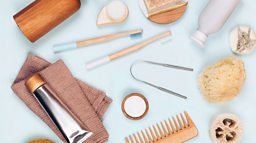
The world’s biggest beauty brand, L’Oreal, has been telling The Big Green Money Show about what it’s doing to move its business to net zero emissions by 2050.
That’s involved shifting factories and offices to renewable energy, but presenters Deborah Meaden and Felicity Hannah were surprised to learn how much of a role the company’s customers will play in that transition.
As well as the manufacture and transport of those products, how we use things like shampoos and shower gels also has an impact on the planet.
So how can we all be greener in our hair, make up and personal care routines? Here are five things Deborah and Felicity learned.
Spend less time in the shower

We’re in the middle of an energy crisis so you're probably already thinking about the cost of things like baths and showers. From an environmental perspective, many UK homes heat their water with gas, which is a fossil fuel.
Even if you use an electric shower, currently around 40% of the UK’s electricity is powered by renewables.
Alexandra Palt, L’Oreal’s Chief Corporate Responsibility Officer, told Deborah and Felicity that "70% of the impact of a shampoo is with the consumer…
"I think we have the responsibility to propose products that allow people to consume less and better, shampoos that rinse off faster, refill and recharge… consumers will have to go stronger on this in order to help us achieve our carbon targets."
Use what you have
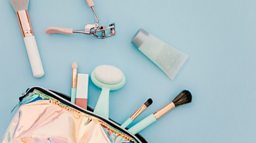
Felicity and Deborah agreed to compare make up bags. "Oh my god!" says Deborah, aghast, as Felicity dumps three full bags on the table.
"This is my current bag" says Felicity, "but most of it is not in use".
She admits all three bags are full of products which have been barely used and some of which are at least five years old.
Environmentalist and eco-friendly make up artist, Khandiz Joni, says it’s important to understand what you have and what you use.
"The first thing you need to do is a bathroom or make up audit. Go through everything… get rid of anything that is going off and dispose of it as responsibly as you can."
Look into buying refillable products
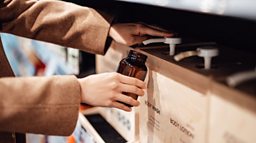
It’s worth doing some research here.
Many brands offer refillable options, and even the big brands are beginning to do this more often, though "refill and recharge does not everywhere meet the consumers expectations or desires", says Alexandra Palt of L’Oreal.
She adds more work needs to be done in this area.
Buying organic is a good idea
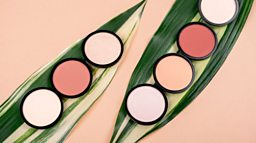
Khandiz Joni says products made from organic ingredients are a good choice because "in the farming practice and in the making of it, it’s better for the planet".
It’s worth remembering though, she says, that minerals such as the colours in cosmetics, can’t be certified organic. So this only applies to products like oils, creams and lotions.
Recycle if you can
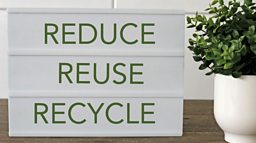
Many beauty products come packaged in materials that can't be put in your recycling bin.
Powder compacts, for instance, might contain a magnet, a mirror and some plastic, while lipsticks might be packaged in harder to recycle plastic casing.
Again, some big stores offer options to recycle beauty products. Check their websites to see which shops participate and what they will accept.
"I've wasted a lot of plastic and I’ve wasted a lot of money", says Felicity, who pledges to sort out her cluttered make up bags and to stop watching the beauty videos which encourage her to buy ultimately useless products that don’t suit her.
There are lots more suggestions to green up your beauty routine, plus you can meet one of the growing number of eco-friendly hairdressers by listening to The Big Green Money Show on Βι¶ΉΤΌΕΔ Sounds.
